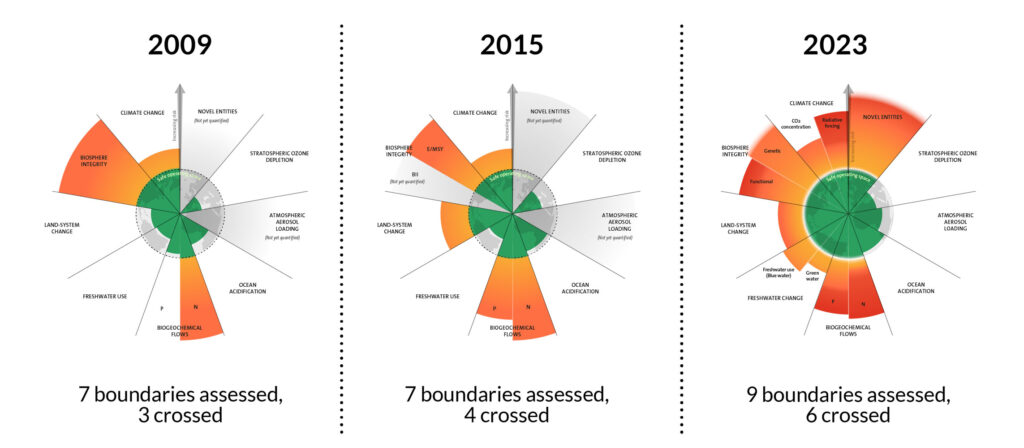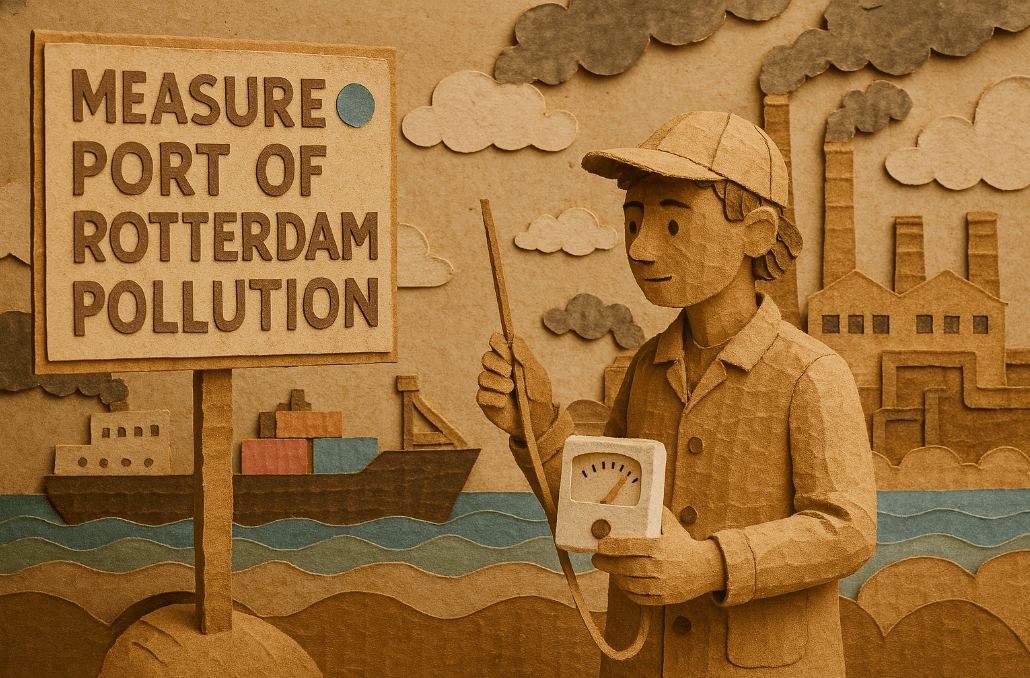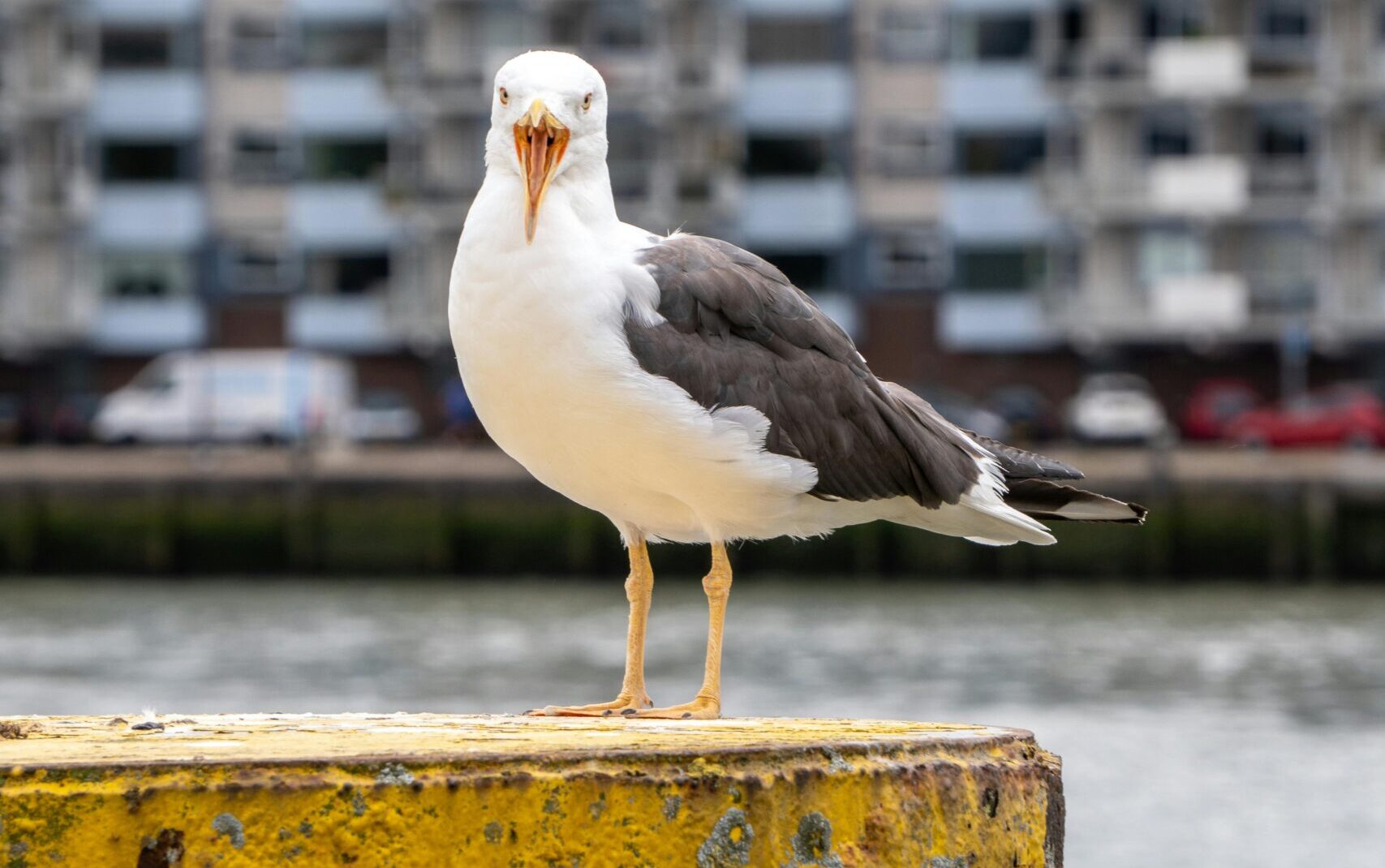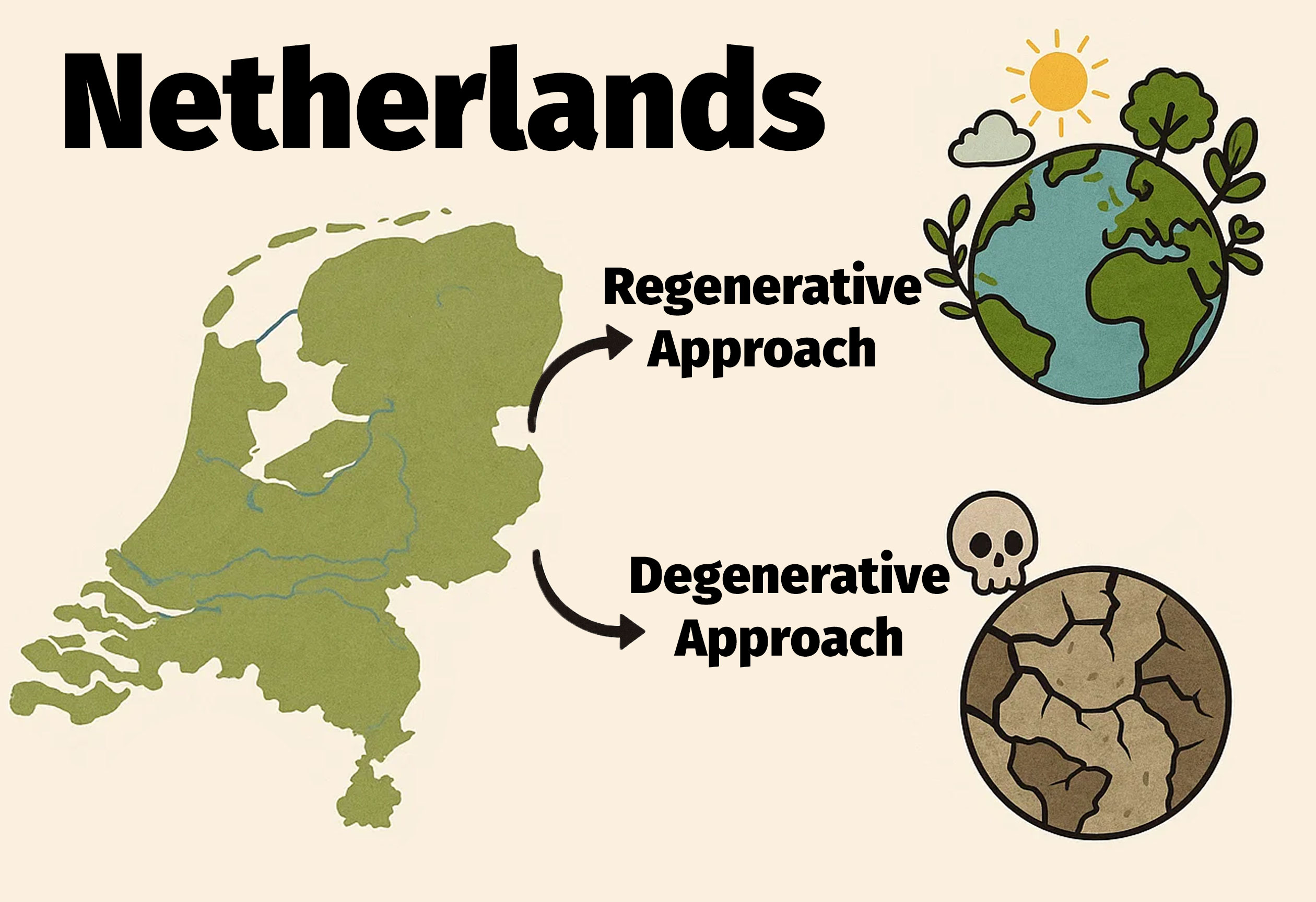Vision Work
At One Planet Port (OPP), our vision work is centered on reimagining the Port of Rotterdam to operate within the Earth’s ecological limits, guided by the nine planetary boundaries framework. This model identifies critical Earth system processes—such as climate change, biodiversity loss, and biogeochemical cycles—that must remain within safe limits to maintain a stable and resilient planet.
Currently, we are compiling a comprehensive report that maps the port’s activities against these planetary boundaries. This involves analyzing the environmental pressures exerted by port operations, including emissions, resource use, and ecological impacts. Our goal is to identify areas where the port’s activities exceed safe ecological thresholds and to develop strategies for bringing them back within sustainable limits.
This vision work is not just about environmental metrics; it’s about fostering a systemic transformation of the port. We aim to align the port’s operations with ecological sustainability, social equity, and economic resilience. By collaborating with local communities, policymakers, and industry stakeholders, we strive to co-create a roadmap for a zero-pollution, regenerative port that serves both people and the planet.
Citizen Science
Overview
Our citizen science program engages community members from diverse neighborhoods surrounding the Port of Rotterdam in the collection and analysis of pollution data. Through this collaborative approach, we’re able to gather more comprehensive data across a wider geographic area, while also raising awareness about local air quality issues.
Participants receive training on proper monitoring techniques, equipment use, and data collection protocols. The data they collect is integrated into our broader pollution mapping initiative, providing valuable insights into spatial and temporal patterns of air pollution in our community.
Recruitment and Community Engagement
We aim to recruit 15 citizen scientists from diverse neighborhoods surrounding the Port of Rotterdam area. These volunteers will be provided with training workshops covering:
• Using P-Trak and NO2 tubes
• Logging environmental metadata
• Using vessel tracking tools
• Data collection protocols
The project will also work with schools and health centers to co-create educational materials about air pollution in the port area.
Storytelling and Engagement
To effectively communicate our findings to the public and policymakers, we will create:
• Mini-documentary series (3–5 minutes each) capturing citizen scientist stories, ship traffic footage, pollution visuals, and policy implications
• Animated explainer videos to show how pollution moves, accumulates, and is linked to vessel activity
• Dashboard showing when and where standards are exceeded with clear policy implications
• Policy briefs combining infographics with citizen quotes and localized data
Pollution Monitoring Project
At One Planet Port (OPP), our pollution monitoring initiative is dedicated to identifying and addressing the environmental impacts of the Port of Rotterdam.
By deploying advanced air quality sensors and collaborating with research institutions, we aim to detect pollutants such as nitrogen dioxide (NO₂) and ultrafine particles that affect the health of local communities.
But we need your help! Consider joining the ranks of our citizen volunteers that our helping us to carry out rigorous scientific monitoring. If you’re interested our would like more information, simply get in touch via the form below, or learn more about our work by going to our Pollution Monitoring Training Materials section.
Making Unseen Pollution Seen
Our efforts include mapping pollution hotspots and analyzing emission sources to develop targeted strategies for mitigation. We also engage with residents and stakeholders to ensure transparency and foster community involvement in creating a cleaner, healthier port environment.
Through this comprehensive approach, OPP strives to make the invisible visible, transforming data into actionable insights that drive sustainable change in port operations. The following our some of our initial findings:
Study Area and Monitoring Sites
The project includes 12 core monitoring locations across the Port of Rotterdam area, strategically selected to cover both sides of the Nieuwe Maas river and include a mix of official monitoring stations and sensitive locations like schools, hospitals, and retirement homes.
Monitoring Site List:
North of Nieuwe Maas –
1. Hoek van Holland (LML station)
2. Maassluis-Kwartellaan (LML station)
3. Vlaardingen Maternity Hospital
4. Schiedam-A. Arienstraat (LML station)
6. Rotterdam-Schiedamsevest (LML station)
7. Rotterdam-BlueCity
South of Nieuwe Maas –
8. Rotterdam-Cruise Terminal
9. Pernis Elementary School
10. Rotterdam-Hoogvliet (LML station)
11. Rozenburg Retirement Home
12. Maasvlakte (LML station)
Site Selection Strategy
Source-Oriented Sites
These are locations chosen for their close proximity to known pollution sources, such as shipping lanes, container terminals, fuel storage facilities, and industrial plants within the port. Monitoring here aims to quantify ultrafine particle (UFP) emissions at or near their point of origin, providing data on peak concentrations and supporting accountability and policy interventions targeting emission sources.
Health-Driven Sites
These are locations selected based on where people live, work, learn, and spend leisure time, particularly in neighborhoods with vulnerable populations such as children, the elderly, or those with respiratory conditions. The goal is to assess real-world human exposure to UFP pollution and highlight potential public health impacts, especially in communities that may already bear disproportionate environmental burdens.
Photo Gallery
A visual showcase of our pollution monitoring activities, equipment, and community engagement efforts.
Volunteer Registration Form
Our citizen science program engages community members in the collection and analysis of pollution data. Through this collaborative approach, we’re able to gather more comprehensive data across a wider geographic area, while also raising awareness about local air quality issues.
Participants receive training on proper monitoring techniques, equipment use, and data collection protocols. The data they collect is integrated into our broader pollution mapping initiative, providing valuable insights into spatial and temporal patterns of air pollution in our community.
Community Cohesion Building
At One Planet Port (OPP), our community engagement efforts are dedicated to fostering a just and sustainable transformation of the Port of Rotterdam. We collaborate closely with local residents, port workers, and stakeholders to ensure that the port’s evolution aligns with the needs and aspirations of the surrounding communities.
Our initiatives include organizing public forums, educational workshops, and collaborative projects that empower community members to actively participate in shaping the port’s future. By facilitating open dialogues and co-creating solutions, we aim to build trust, promote transparency, and ensure that the transition to a zero-pollution port benefits all.
Through these collective e!orts, OPP strives to bridge the gap between policy and practice, ensuring that the voices of the community are integral to the port’s sustainable development.
Join the Newsletter
Subscribe to our newsletter to receive periodic updates on our initiatives, including invitations to upcoming events, progress on our key projects, and notifications about newly published reports and insights. Be part of our journey toward a sustainable and zero-pollution Port of Rotterdam.





